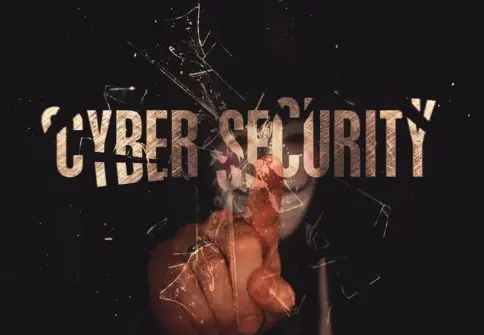
What Is Ethical Hacking? A Complete Guide for Beginners
Ethical hacking involves a systematic process where professionals, often called ethical hackers or white hat hackers, analyze systems, networks, or applications to detect vulnerabilities. Unlike malicious hacking, this practice is conducted with the consent of the organization or system owner. The primary goal is to identify potential security gaps before attackers exploit them. Ethical hackers use the same tools and techniques as malicious hackers but operate within legal boundaries to ensure that any risks are mitigated safely.

Importance in Today's Digital Landscape
In an age where digital systems power nearly every aspect of business and daily life, ethical hacking has become essential. Cybercriminals are constantly developing ways to exploit weaknesses in systems, leading to risks such as data theft, service disruptions, and financial loss. Ethical hacking helps organizations proactively secure their digital assets by finding and fixing vulnerabilities.
Additionally, ethical hacking supports regulatory compliance, protects customer trust, and safeguards sensitive information, which is critical for businesses handling financial transactions, personal data, or intellectual property. It ensures that systems remain robust and resilient, helping businesses and individuals maintain a safe online presence.
What Does an Ethical Hacker Do?
An ethical hacker, also known as a white hat hacker, is a cybersecurity professional who tests computer systems, networks, or applications to find and fix vulnerabilities. Their work involves:
- Conducting penetration tests to simulate cyberattacks.
- Identifying weak points in security protocols.
- Providing detailed reports on discovered risks and recommending solutions.
- Collaborating with businesses to strengthen their digital defenses.
These activities are carried out with proper authorization, ensuring compliance with laws and organizational policies.
Difference Between Ethical Hackers and Malicious Hackers
Ethical hackers and malicious hackers may use similar techniques, but their intentions and actions differ significantly:
| Aspect | Ethical Hackers | Malicious Hackers |
|---|---|---|
| Permission | Operate with authorization | Act without permission |
| Intent | Secure systems and protect data | Exploit systems for personal gain |
| Outcome | Fix vulnerabilities | Cause harm, steal data, or disrupt systems |
| Legal Standing | Operate within legal frameworks | Engage in illegal activities |
Ethical hackers act as defenders, helping organizations stay protected, while malicious hackers exploit weaknesses for unethical purposes.
Types of Hackers
White Hat Hackers
- Conducting security tests (e.g., penetration testing).
- Providing solutions to improve system defenses.
- Ensuring compliance with security standards.
Black Hat Hackers
- Steal sensitive information like financial data.
- Cause damage to systems or networks.
- Disrupt business operations through malware or ransomware attacks.
Gray Hat Hackers
White hat hackers, also known as ethical hackers, are professionals who work legally and with permission to secure systems. Their main goal is to identify and fix vulnerabilities before they can be exploited by attackers. They focus on:
Black hat hackers are individuals who exploit vulnerabilities in systems without permission. Their intent is malicious, often aiming to:
Gray hat hackers fall between white and black hat hackers. They often explore systems without permission but don't have harmful intent. Instead, they may:
- Report discovered vulnerabilities to the affected organization.
- Seek recognition or financial rewards for their findings.
While their actions can help improve security, working without permission makes their activities legally questionable.
Key Principles of Ethical Hacking
Permission and Legality
- The activities are within legal boundaries.
- There are clear agreements on what can and cannot be tested.
Scope Definition
- Setting clear boundaries for the systems, networks, or applications to be tested.
- Avoiding unintended disruptions by focusing only on approved areas.
- Aligning expectations with the organization to ensure the testing meets its security goals.
Reporting Vulnerabilities
- Providing detailed descriptions of each weakness.
- Recommending steps to fix the issues.
- Maintaining confidentiality to ensure the findings don't fall into the wrong hands.
Ethical hacking is always conducted with proper authorization from the system owner. This ensures that:
Operating without explicit permission could lead to legal consequences, even if the intent is not harmful.
Defining the scope is crucial to ethical hacking. It involves:
A core responsibility of ethical hackers is to document and report all vulnerabilities found during testing. This includes:
By adhering to these principles, ethical hackers help organizations improve security while upholding trust and professionalism.
.webp)
Common Techniques Used in Ethical Hacking
Penetration Testing
- Identify exploitable vulnerabilities.
- Test the effectiveness of existing security measures.
- Provide actionable insights to strengthen defenses.
Vulnerability Scanning
- Outdated software or firmware.
- Misconfigurations that could lead to breaches.
- Weak encryption protocols.
Social Engineering
- Test employees' awareness of phishing emails or fraudulent requests.
- Highlight weaknesses in training or security policies.
- Educate organizations on reducing risks posed by social engineering attacks.
Penetration testing involves simulating real-world cyberattacks to evaluate the security of systems. Ethical hackers use this technique to:
This method often includes attempts to bypass firewalls, access unauthorized data, or exploit weak passwords.
Vulnerability scanning is a systematic process of analyzing systems to detect known security flaws. Tools used in this process scan networks, applications, and devices for:
Ethical hackers generate reports highlighting detected vulnerabilities and prioritize them for resolution.
Social engineering focuses on exploiting human behavior to gain unauthorized access to systems or data. Ethical hackers use this method to:
Examples include sending simulated phishing emails or attempting to obtain sensitive information through deceptive calls.
Benefits of Ethical Hacking
Enhancing Security Measures
- Ensures systems are better protected against cyber threats.
- Helps organizations stay ahead of new and emerging risks.
- Builds a resilient IT infrastructure that can withstand potential attacks.
Protecting Sensitive Data
- Customer data, including personal and financial details.
- Business-critical information like trade secrets and internal records.
Compliance with Regulations
- Identifying gaps in compliance with frameworks like GDPR, HIPAA, or PCI DSS.
- Demonstrating a commitment to maintaining robust cybersecurity practices.
- Avoiding penalties associated with non-compliance by securing systems in line with legal requirements.
Ethical hacking strengthens an organization's defenses by identifying and fixing vulnerabilities before attackers can exploit them. This proactive approach:
Ethical hacking plays a vital role in safeguarding sensitive information, such as:
By addressing vulnerabilities, ethical hackers prevent data breaches, which can cause financial losses and damage reputation.
Organizations are often required to meet specific security standards to comply with industry regulations. Ethical hacking helps in:

How to Become an Ethical Hacker
Necessary Skills and Knowledge
- Networking: Understanding how networks function and how data flows through systems.
- Operating Systems: Proficiency in Linux, Windows, and macOS, as ethical hackers often work across various platforms.
- Programming: Knowledge of languages like Python, C, and JavaScript for scripting and automation.
- Cybersecurity Basics: Familiarity with firewalls, encryption, and intrusion detection systems.
- Problem-Solving Skills: Ability to analyze systems and creatively find vulnerabilities.
Certifications and Training Programs
- Certified Ethical Hacker (CEH): Covers tools and techniques used by ethical hackers.
- CompTIA Security+: Focuses on foundational cybersecurity skills.
- Offensive Security Certified Professional (OSCP): Advanced penetration testing skills.
- CISSP (Certified Information Systems Security Professional): Broad cybersecurity knowledge for experienced professionals.
Career Opportunities
- Penetration Tester: Performing controlled attacks on systems to uncover vulnerabilities.
- Cybersecurity Analyst: Monitoring systems for potential threats and providing solutions.
- Security Consultant: Advising organizations on improving their cybersecurity strategies.
- Incident Response Specialist: Investigating and resolving security breaches.
To become an ethical hacker, it's essential to build a strong foundation in:
Obtaining certifications demonstrates expertise and credibility. Popular certifications include:
Training programs, online courses, and bootcamps also offer hands-on learning opportunities to build practical skills.
Ethical hackers have diverse career options in both public and private sectors, such as:
Frequently Asked Questions
What is the Difference Between Ethical Hacking and Penetration Testing?
- Ethical Hacking: Focuses on overall security assessment using multiple methods, such as vulnerability scanning and social engineering.
- Penetration Testing: A subset of ethical hacking, specifically aimed at simulating attacks to find exploitable weaknesses in a system.
Is Ethical Hacking Legal?
How Much Do Ethical Hackers Earn?
- The salary of an ethical hacker varies based on experience, location, and the industry. On average:
- Experienced professionals with certifications can earn $90,000 to $150,000 annually.
- Freelancers or consultants may charge hourly rates, often ranging from $50 to $200 per hour.
Ethical hacking is a broad term that involves testing systems, networks, or applications to improve security. It includes a variety of techniques, including penetration testing.
Yes, ethical hacking is completely legal when performed with proper authorization from the system owner. Ethical hackers operate under strict agreements that outline what they are allowed to test, ensuring compliance with the law. Acting without permission, even with good intentions, can be considered illegal.
The salary of an ethical hacker varies based on experience, location, and the industry. On average:
Full Stack Development Courses in Different Cities
- Srinagar
- Bangalore
- Gujarat
- Haryana
- Punjab
- Delhi
- Chandigarh
- Maharashtra
- Tamil Nadu
- Telangana
- Ahmedabad
- Jaipur
- Indore
- Hyderabad
- Mumbai
- Agartala
- Agra
- Allahabad
- Amritsar
- Aurangabad
- Bhopal
- Bhubaneswar
- Chennai
- Coimbatore
- Dehradun
- Dhanbad
- Dharwad
- Faridabad
- Gandhinagar
- Ghaziabad
- Gurgaon
- Guwahati
- Gwalior
- Howrah
- Jabalpur
- Jammu
- Jodhpur
- Kanpur
- Kolkata
- Kota
- Lucknow
- Ludhiana
- Noida
- Patna
- Pondicherry
- Pune
